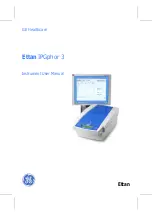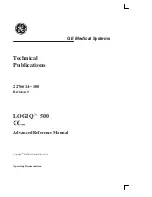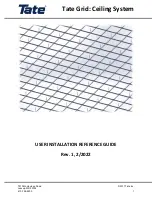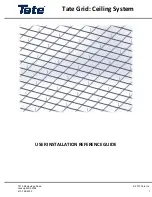
GE
D
IRECTION
FQ091019, R
EVISION
2
V
IVID Q
N S
ERVICE
M
ANUAL
Chapter 1 - Introduction
1-15
1-4-5
Vivid q N Battery Safety
The lithium ion battery provides power when an AC power source is not available. Lithium ion batteries
last longer than conventional batteries and do not require replacement as often. You can expect one
hour of battery life with a single, fully-charged battery.
The lithium ion technology used in the system’s battery is significantly less hazardous to the
environment than the lithium metal technology used in some other batteries (such a watch batteries).
Used batteries should not be placed with common household waste products. Contact local authorities
for the location of a chemical waste collection program nearest you.
NOTE:
Regulations vary for different countries. Dispose of a used battery in accordance with local
regulations.
WARNING
WARNING
---
THE
VIVID Q N
BATTERY HAS A SAFETY DEVICE.
DO NOT ATTEMPT TO DIS-ASSEMBLE OR ALTER THE BATTERY!
ALWAYS OBSERVE THE FOLLOWING PRECAUTIONS:
•
Charge batteries only when the ambient temperature is between 0 °C and 65 °C (32 °F and
149 °F), and discharge the batteries between -10 °C and 55 °C (14 °F and 131 °F)
•
Do not short-circuit the battery by directly connecting the negative terminals with metal
objects.
•
Do not heat the battery or discard it in a fire.
•
Do not expose the battery to temperatures over 60 °C (140 °F). Keep the battery away from
fire and other heat sources.
•
Do not charge the battery near a heat source, such as, a fire or heater.
•
Do not leave the battery in direct sunlight.
•
Do not pierce the battery with a sharp object, hit it, or step on it.
•
Do not use a damaged battery.
•
Do not apply solder to a battery.
•
Do not connect the battery to an electrical power outlet.
WARNING
WARNING
IN THE EVENT THAT THE VIVID Q N PORTABLE ULTRASOUND SCANNER WILL NOT
BE USED FOR A LONG PERIOD, IT IS NECESSARY TO REMOVE THE BATTERY FROM
THE SYSTEM WHILE NOT IN USE.
















































